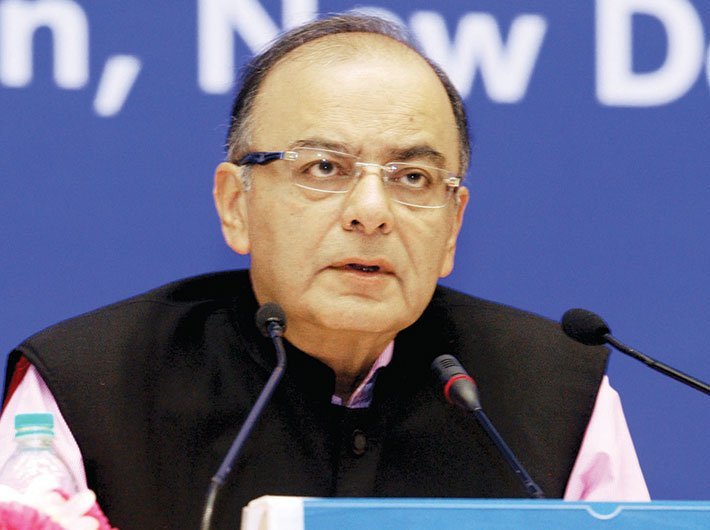The prime minister’s decision is intended to create a new “normal”. It seeks to change the expenditure pattern of India and Indians. It is obviously disruptive
The implementation of the demonetisation decision carried pain. “It can lead to short term criticism and inconveniences. Drop in economic activity on account of the currency squeeze during the remonetisation period would have a transient impact on the economy,” wrote finance minister Arun Jaitley in a Facebook blog.
“The decision involves high level of secrecy and printing substantial amounts of paper currency, distribution through banks, post offices, banking mitras and ATMs.”
It said that the prime minister’s decision is intended to create a new “normal”. It seeks to change the expenditure pattern of India and Indians. It is obviously disruptive. All reforms are disruptive. They change the retrograde status quo. The demonetisation puts a premium on honesty and penalises dishonest conduct.
Read: Recession is likely: Prof Arun Kumar on demonetisation
The blog “Demonetisation – A look back at the last two months” said that when 86% of a country’s currency constituting 12.2% of its GDP, is squeezed out of the market and sought to be replaced by a new currency, there would obviously be significant consequences of that decision.
He wrote on Sunday that the Narendra Modi government had absolute clarity from day one that it would move against the shadow economy and black money. It’s first decision was to constitute SIT under the directions of the Supreme Court. The Prime Minister had proposed to the G-20 at Brisbane that international cooperation in sharing information with regard to base erosion and profit shifting should be expedited.
The black money law dealing with illegal assets outside India opened a window for disclosure with 60% tax and provides a ten year imprisonment.
The Income Declaration Scheme (IDS) 2016 was highly successful with a 45% tax. The PAN card requirement for cash transaction beyond rupees two lakhs put hurdles on expenditure through black money. The Benami law legislated in 1988 and never implemented. It was amended and has been put into action. The GST, which is scheduled to be implemented this year, will provide for better indirect tax administration and being a more efficient law will check tax evasion. The demonetisation of high denominational currency notes was the big step in the same direction.
Read: Demonetisation will not have a big bang impact: Experts
Jaitley went on to write that in the year 2015-16, 3.7 crore assesses of the total population of over 125 crores, filed income tax returns. Out of these, 99 lakhs declared income below Rs.2.5 lakhs and paid no taxes; 1.95 crores declared income less than Rs.5 lakhs; 52 lakhs declared income between Rs.5 to10 lakhs, and only 24 lakhs declared income above Rs.10 lakhs. No better evidence is required to substantiate that both in the matter of direct and indirect taxes India continues to suffer being a hugely tax non-compliant society.
“Expenditure required for poverty eradication, national security and economic development have to be compromised with on account of tax non-compliances. For seven decades the Indian “normal” has been to undertake transactions partly in cash and partly in cheque. “Pucca” and “Kachha” accounts are a part of the business language. Tax evasion has been considered as neither unethical nor immoral. It was just a way of life. Several governments have allowed this “normal” to continue even though this compromised with larger public interest.”
The finance minister also wrote that the fact that large quantum of high denominational currency has been deposited with the banks does not render this money to be legitimate cash. Black money does not change its colour merely because it is deposited in bank. On the contrary, it loses its anonymity and can now be identified with its owner. The Revenue Department would thus be entitled to tax this money. In any case, the amendment to the Income Tax Act itself provides that the said money, if voluntarily declared or if involuntarily detected, would be liable for differential and high rates of taxation and penalty.
Read the full blog here
